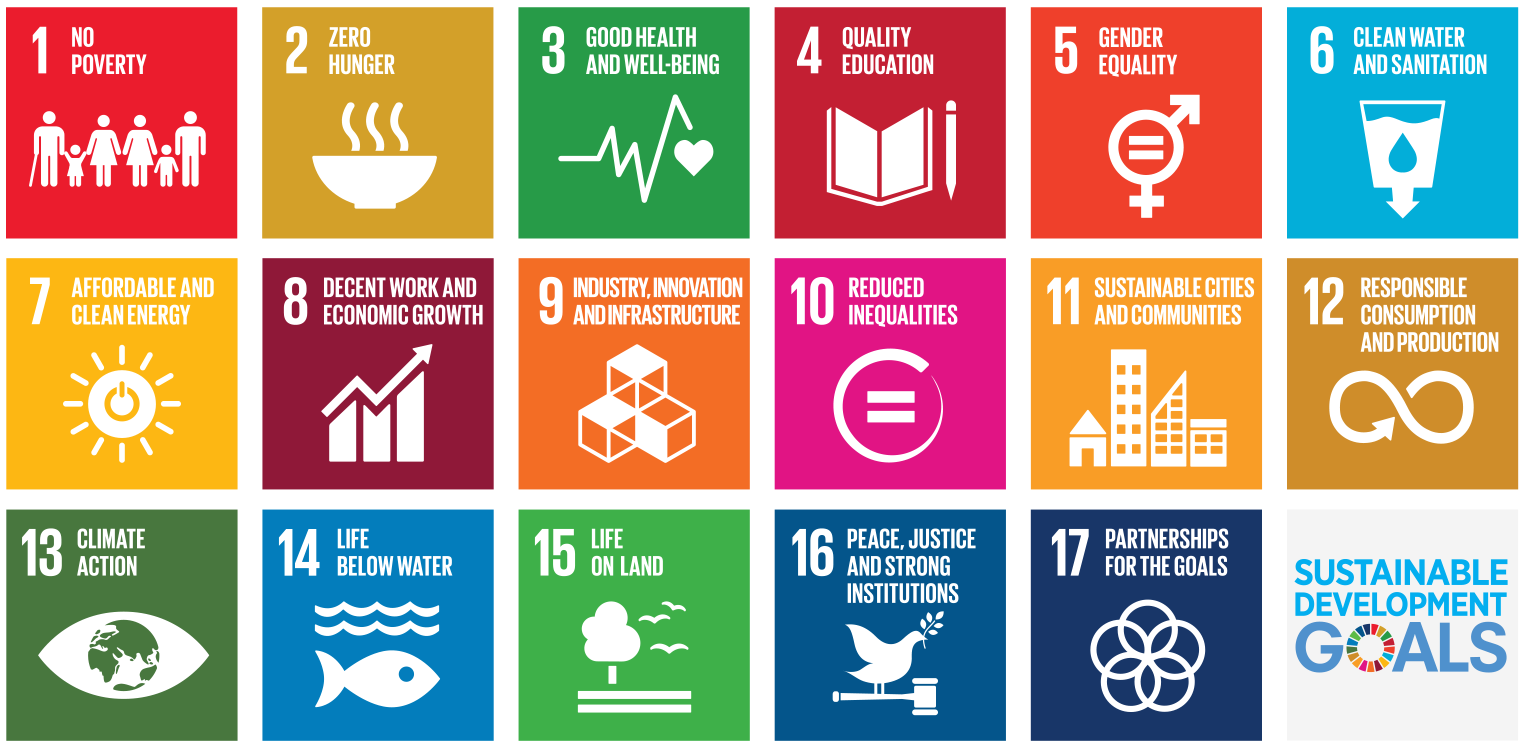Regions4 Secretariat and several regional governments’ representatives attended the 2019 High-level Political Forum on Sustainable Development (HLPF) from 9 to 18 July 2019 at the United Nations Headquarters in New York City. The HLPF is the main UN platform responsible for the annual review of the progress on the 2030 Agenda and the Sustainable Development Goals. This year was the last meeting in the HLPF’s first cycle, marking the conclusion of the review of all 17 SDGs, discussion on four themes, and presentation of 142 voluntary national reviews. It took stock of progress, gaps, and obstacles of the 2030 Agenda and sent messages to the SDG Summit in September 2019.
The participation of regions was specially reinforced by Regions4 members, such as Basque Country, Catalonia, Council of Governors of Kenya, Flanders, and Quebec at the level of president and minister. The regions reported different efforts and territorial approaches to the localization of the SDGs.
During the HLPF, regional governments joined official plenary sessions and different side-events, such as the Local and Regional Governments Day and the Local Action for Global Commitments. Also, Regions4 and the Québec Government hosted a reception that provided a space for interaction between Regions4 members and key partners, encouraging collective discussion and collaboration around concrete approaches to the SDGs localization.
Regions4 engagement
The 2019 HLPF had a clear message: the global response to implementing the SDGs has not been ambitious enough, and a renewed commitment and accelerated action is needed to deliver the SDGs in time. The progress on SDGs has been slow and uneven and threated by the negative impacts of climate change. The HLPF called on government leaders to respond to the urgency of the challenges we face. Doing business as usual will not deliver the results the world needs. Integrated approaches in implementation, partnerships, and multi-level action are essential in all fronts. Meaningful stakeholder involvement, more empowerment, courage, inclusivity, and equality will be needed.
The Lehendakari (President) of the Basque Government Mr. Iñigo Urkullu Renteria was the lead discussant in the session “Financing the SDGs: Moving from words to action” on behalf of the Major Groups and other Stakeholders. He presented the Agenda Euskadi Basque Country 2030 and the experience of implementing social or environmental public policies financed with the Euskadi Sustainable Bonds. He also stressed that the 2030 Agenda demands partnerships and “the need to reinforce the role of the governments that are closest to the demands and needs of citizens. The participation and collaboration of all governments at all levels will allow us to achieve a new governance that facilitates the fulfilment of the SDGs.”
In the “High-level Segment of ECOSOC: Long term trends and scenarios”, the Future Generations Commissioner for Wales Ms. Sophie Howe emphasized the importance of transparency, predictability, and accountability of all governments. She shared the experience of the Well-being Future Generations Act, the value of long-term planning and enhanced partnerships: “Many of the solutions are at the local and regional level to act and deliver. I call Member States to make use of those that are willing, capable and ready to act.”
The session on SDG 13 (climate action) that reviewed the implementation and interrelations among the SDGs called for the creation of a “virtuous cycle” for climate action, stressing the importance of synergistic implementation, concrete initiatives, and scaling up of actions. The 2019 Climate Action Summit is expected to bring ambitious action plans by all levels of governments. Regions4, on behalf of the Local Authorities Major Group, presented an intervention emphasizing the role of decentralized multi-level governance approach in supporting policy coherence. The statement was delivered by the Director-General for Multilateral Affairs of the Government of Catalonia Mr. Isidre Sala Queralt.
On July 15th, Regions4 and the Québec Government co-hosted a networking reception to stress the importance of regional governments’ voice in international agendas. It gathered the Regions4 delegation to the 2019 HLPF and key partners. The event shared the regions’ experience within the network, discussed shared challenges, and explored how to move from individual good practices to collective implementation. It was the first public event after the launch of Regions4 new brand, inaugurating a novel phase of prosperity and growth for our network. Some of the actions showcased are available in the Knowledge Hub, an information center with the main contributions of our members in this agenda.
In addition to facilitating the participation of members in official meetings and organizing our own event, Regions4 attended parallel meetings and contributed to different activities, as members of the Global Task Force and as coordinators of the Local Authorities Major Group, in the Steering Group of the Major Groups and other Stakeholders (MGoS) Coordination Mechanism.
The “Local Action for Global Commitments” was a two-day special event about the local contributions to the SDGs. It was co-organized by the Global Taskforce and the Local 2030. There was a clear call to the international community to recognise LRG as partners for transformative agendas and to embrace local governance as a driver of territorial cohesion. Basque Country and Wales represented the regional governments’ voice showcasing experiences of sustainable financing policy and the development of Voluntary Local Reviews (video recording can be accessed here: part 1, 2, 3, 4, and 5).
Regions4 delegation also attended the Local and Regional Governments Day that gathered over 120 representatives of the Global Taskforce. The adopted Statement of the Local and Regional Governments constituency to the 2019 HLPF calls on national governments and international institutions to upscale efforts for greater cooperation, and demand the national and international coordination mechanisms and resources. The regional government voice was represented by the Minister of Foreign Action of the Catalonia Government Mr. Alfred Bosch who highlighted that partnerships among spheres of government and the UN are essential to developing stronger institutions.
GTF launched its third report on the localization of the SDGs, built on contributions by all GTF networks, including Regions4 inputs on the SDG 13 chapter. It was presented to the President of the General Assembly of the United Nations Ms. María Fernanda Espinosa, who acknowledged the role that LRG are playing in public service provision. The report featured initiatives and policy actions that show increased LRG mobilization to the localization of the SDGs. However, it demands scaling-up of these initiatives and enhanced multi-level coordination mechanisms, since 49 countries out of 143 consulted LRG to participate in the VNR monitoring and reporting processes.
Regions4 Secretariat participated in several events to strength collaboration with key partners, including sessions organized by the Major Groups and other stakeholders, the VNR Lab “Localizing the SDGs and VNRs: reporting on progress, challenges and opportunities,” the side event co-organized by the General Delegation of the Government of Flanders to the USA and CIFAL Flanders “How to become SDG-Proof? Implementation of the 2030 Agenda in Flanders: opportunities & challenges,” and strategic meetings with UN DESA, present and future Presidents of ECOSOC, and President of United Nations Environment Assembly.
For further information, we recommend the following links:
- The Sustainable Development Goals Report 2019
- Compilation of main messages for the 2019 voluntary national reviews
- Note by the Secretariat on the discussion papers on the theme of the high-level political forum on sustainable development, submitted by the Major Groups and other Stakeholders, including the statement submitted by the Local Authorities Major Group
- IISD Earth Negotiations Bulletin
The way ahead: SDG Summit
The United Nations Sustainable Development Goals Summit (SDG Summit) will take place in the afternoon of 24 and 25 September 2019 at the United Nations Headquarters in New York, under the auspices of the United Nations General Assembly (UNGA). It will be the first of its kind to take place after the adoption of the 2030 Agenda and its outcome will be a Political Declaration of Heads of State and Government giving political guidance on how to accelerate the implementation of the 2030 Agenda and SDGs.
A second edition of the Local and Regional Governments’ Forum will consolidate a space for dialogue among local and regional governments, national governments, and the UN system. The LRG Forum will be held on 24 September from 3 pm to 6 pm, back to back with the SDG Summit. The following structure is proposed by the GTF: a first segment devoted to climate action and links with 2030 Agenda; a second hour on good practices for localizing the SDGs, and a third segment to announce Acceleration Commitments for SDG Action. Regions4 highly recommends the submission of acceleration commitments that will increase the visibility of your SDGs actions and may be announced at the LRGs Forum.
In addition, GTF applied to host parallel events in the SDG Action zone of the UNGA High-level week with different terms of engagement modalities and formats. The proposals include expert panels on SDGs and Climate, a reception of the delegation of Local and Regional Governments, and a lightning-talk on women in local decision making. The speaking opportunities will be very limited, and speakers will need to be at the highest level of representation. Please inform us (imoraes@regions4.org) at your earliest convenience if your region is planning to attend the UN high-level week and submit any acceleration action.



